In recent years, the Eastern Mediterranean has become more than just a geographic location; it has evolved into a vast chessboard where energy, trade, diplomacy and security are all intricately intertwined. On this board, every country is trying to both preserve its current alliances and position itself for the possible future balances. Egypt stands right at the center of this game.
Recently, Egypt signed a massive $35 billion natural gas purchase agreement with Israel. For Cairo, which has been struggling with high inflation, a currency crisis and power shortages, this agreement means a fast and reliable energy supply. What’s more, this gas trade has the backing of international financing. Egypt liquefies Israeli gas at its own ports and then exports it to Europe, a business that has become a lifeline for the country’s economy.
But there is also a geopolitical side to the story. Egypt is a member of the East Mediterranean Gas Forum (EMGF). Other members include Greece, the Greek Cypriot administration, Israel, Italy, Jordan and France. Türkiye and the Turkish Republic of Northern Cyprus (TRNC) are notably excluded from this platform.
Who offers what to Egypt?
In 2020, Egypt signed a maritime delimitation agreement with Greece, but the outcome did not meet Athens’ expectations. Greece sought to push forward a map that favored itself heavily, effectively expanding its own maritime claims rather than creating a balanced partnership. In doing so, Greece tried to portray itself in marine law as if it were an island nation, using the principle of “islands generating full maritime zones” to claim far larger areas than what the continental shelf rules of international law typically recognize. This move was not only legally controversial but also drew strong reactions from Türkiye. Cairo, for its part, did not grant Athens all the unlawful concessions it wanted.
Meanwhile, Türkiye presented Egypt with a more advantageous and legally sound offer. This proposal included a maritime area roughly three times the size of Cyprus, much larger than what Greece was offering. The offer caught Cairo’s attention, leading Egypt to maintain a partial deal with Greece and keep its diplomatic channels with Türkiye open.
Another important dynamic in the background was the Libyan civil war. At that time, Egypt and Türkiye were supporting opposing sides, with Cairo backing putschist Gen. Khalifa Haftar and Ankara supporting the Tripoli-based Government of National Accord. Türkiye had signed a maritime boundary agreement (MEB) with Tripoli, and Egypt’s political rift with Ankara deepened after the 2013 coup in Egypt, making any deal between the two difficult. Now, however, the picture has changed dramatically. Türkiye has signed agreements with both sides in Libya, and Ankara and Cairo have restored diplomatic relations, entering a normalization and potential alliance phase. The political barriers that once blocked a Türkiye-Egypt MEB agreement have largely been removed, making such a deal much more feasible today.
Partnership to power corridor
Egypt’s cautious distance from Greece also stems from another factor: the growing closeness between Israel and Greece. This is causing unease in Cairo and suggests that an Israel-Greece-Egypt front may not be sustainable in the long run.
On the other side of the regional chessboard lies the Türkiye-led bloc. This front already includes Libya and could soon expand to include Italy. Talks have already begun. In the future, Syria, Palestine and Lebanon could also join this alignment. Beyond the Mediterranean, Türkiye has signed energy agreements with countries such as Somalia and Sudan, and there is potential for Yemen to be included, particularly regarding the Suez Canal trade route. Given ideological affinities and overlapping economic interests, even Spain and Maghreb countries could become part of this broader corridor. At the heart of such a structure would be Egypt, a country strategically positioned to benefit from being at the center of trade between Asia, Africa and Europe in the Mediterranean.
Another important factor is the geography of resources. The gas reserves of Gaza and the Leviathan field, combined with the potential inclusion of Syria, create a significant East–West energy corridor that could be strategically vital for Egypt. If Egypt manages to sign a maritime agreement with Türkiye, it can both preserve its current gains and secure a key position in a new emerging bloc.
Security concerns everywhere
The ongoing Israel-Gaza war is also reshaping calculations. The world is gradually moving toward diplomatically isolating Israel for actions many countries are now calling genocide and toward cutting trade ties. This trend is expected to accelerate after the United Nations General Assembly in September, when many states are likely to recognize Palestine officially. Such a shift could bring severe international sanctions against Israel, which would inevitably affect Egypt’s economy as a partner in Israeli gas exports.
Meanwhile, security concerns are already impacting Egypt’s main revenue streams. The war has triggered Houthi attacks on commercial vessels in the Red Sea, forcing ships to reroute away from the Suez Canal. This has reduced canal traffic and sharply cut Egypt’s revenues, deepening its economic troubles.
All of this makes it clear: Egypt needs a long-term, legitimate and secure partnership, and a maritime agreement with Türkiye would provide exactly that. It would also help Cairo diversify its energy export routes, avoiding overdependence on Israel and protect against sabotage risks.
On the other hand, Türkiye’s defense industry and military presence are essential assets for Egypt in a partnership. Beyond that, Türkiye’s strong trade and diplomatic influence, stretching from the Balkans to the South Caucasus, can give Egypt real advantages. This connection can open new markets, create political support in different regions and strengthen Egypt’s position in both the Mediterranean and global arenas.
In summary, a partnership agreement with Türkiye in the Eastern Mediterranean offers Egypt not only a more advantageous partner than Greece but also a productive alternative to the Western and Israeli bloc, whose future is seen as uncertain. Egypt is a critical piece on the Eastern Mediterranean chessboard. If it chooses Türkiye over Greece for a new maritime deal, it could secure a central place on the energy and trade map of the future. This would be not only a victory for today but also a strategic legacy for the decades to come.

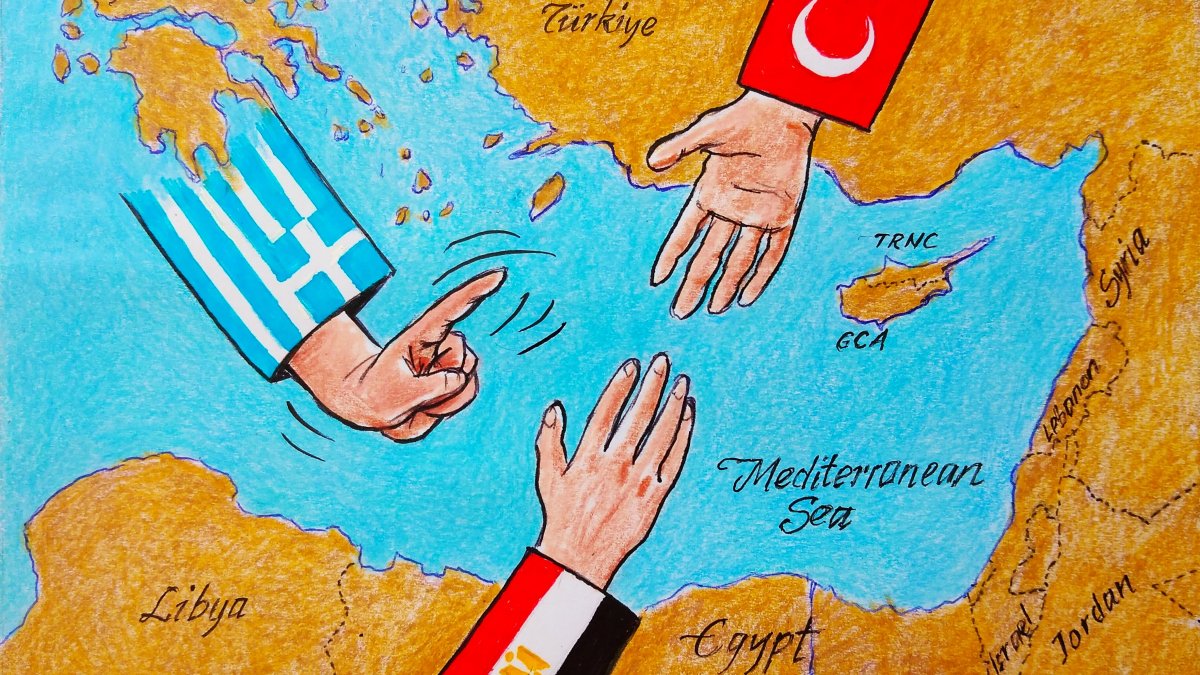




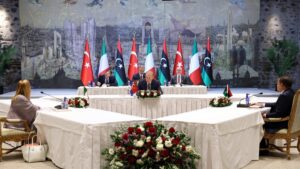





















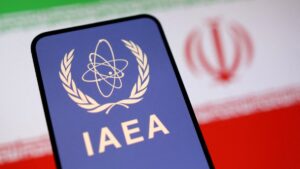
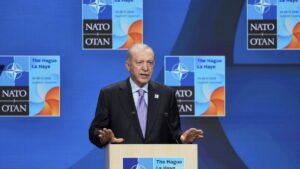













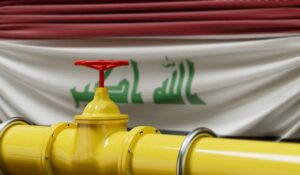








Be First to Comment